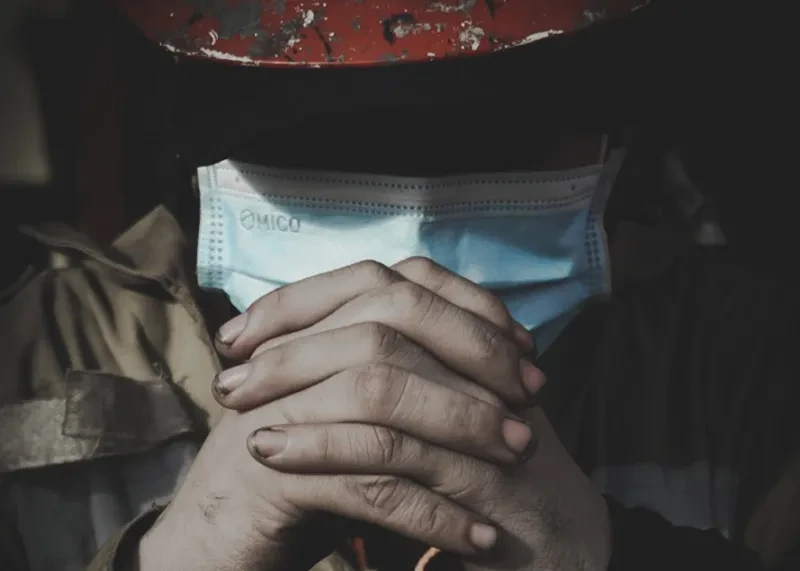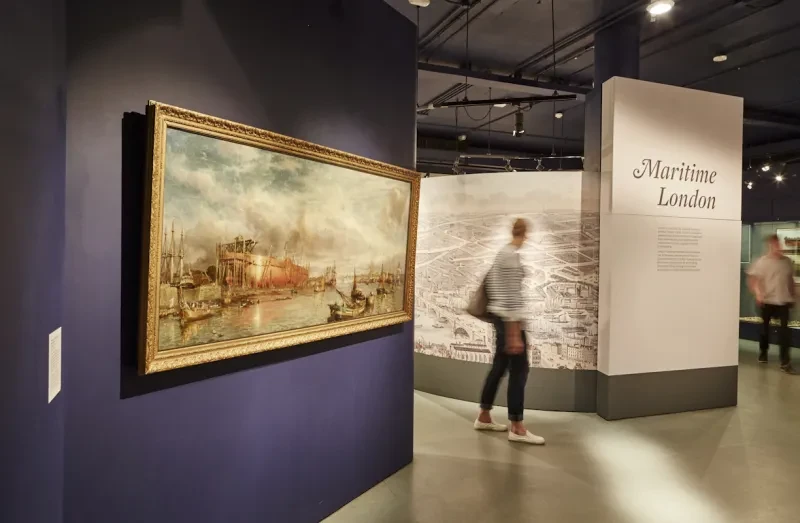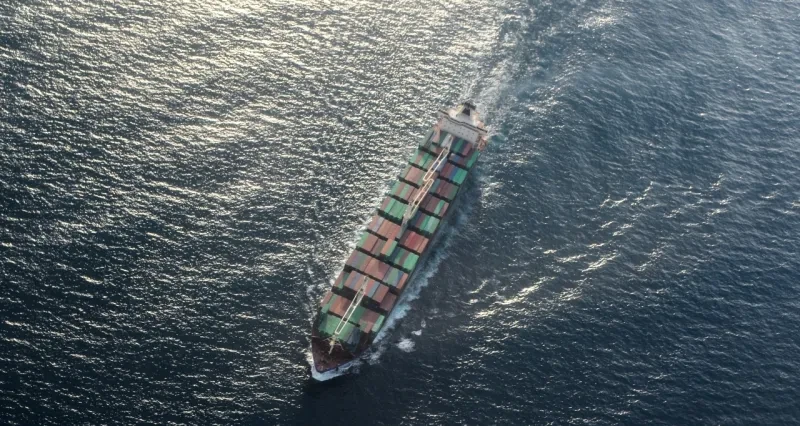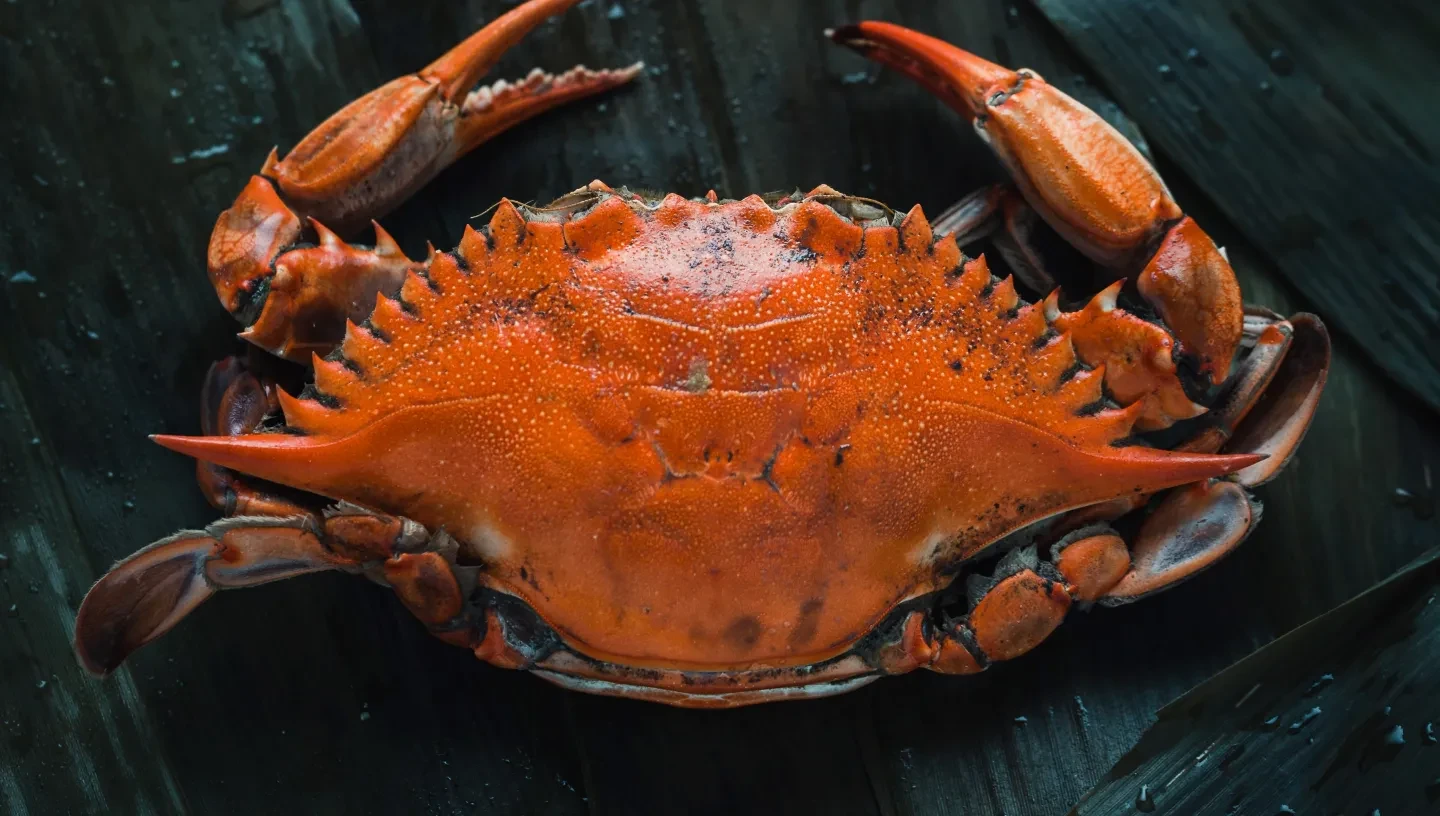
By Professor Chris Armstrong, Professor of Political Theory at the University of Southampton
Fishing is big business. Trillions of fish are caught or farmed at sea each year.
Some fishing activities are environmentally destructive, and many people now make an earnest effort to eat fish that is ‘sustainably’ sourced.
But this is not the only issue that consumers of fish need to reflect upon. What if people who buy and eat fish are also helping to sustain the exploitation of workers?
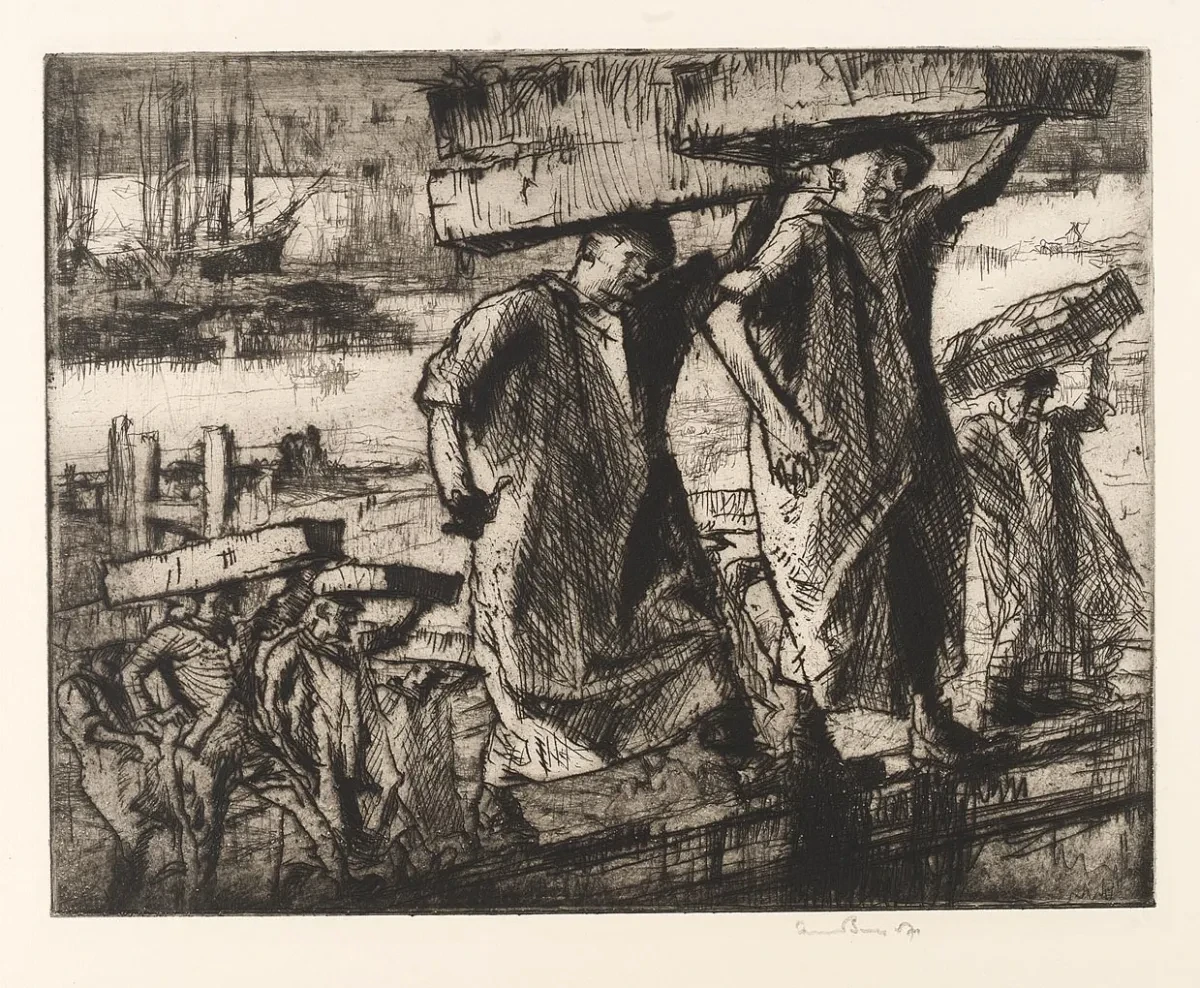
Billingsgate fish market porters, 1920
Fishing has always been associated with dangerous and physically demanding work. However, recent investigations have uncovered widespread abuse of human rights worldwide
In fact, human rights charities have documented horrific abuse of workers within the fishing industry. Employers have even killed workers and thrown their bodies overboard, simply because those workers have dared to protest against their miserable working conditions.
These are extreme cases in what has been called an ‘outlaw ocean’, where crimes can often be committed with impunity.
Fishermen and women have also been forced to work long hours while being deprived of adequate food or medical attention. Some workers on fishing boats are victims of modern slavery, in the sense that they not have consented to work or face threats if they try to leave the industry.
Many workers are pushed into the fishing industry in the first place by people traffickers who are willing to exploit their poverty and vulnerability. This has been a particular problem in the Gulf of Thailand, which is the centre of global prawn production.
But no stretch of the ocean has been free of abuse. In UK waters, workers in scallop fisheries have been found to be at risk of modern slavery too.
People who buy fish (or fish-based products, including dietary supplements and pet food) are often unaware of these problems, although a number of charities have campaigned on human rights problems within the fishing industry.
While some NGOs have campaigned to improve the situation for victims of modern slavery in the Thai seafood sector, for example, uptake from major seafood brands has been disappointing to date. The most serious problems in the industry, in the seas around Thailand and elsewhere, have proven very difficult to stamp out. In the meantime, our purchases can mean we are helping to support horrific practices out on the open ocean.
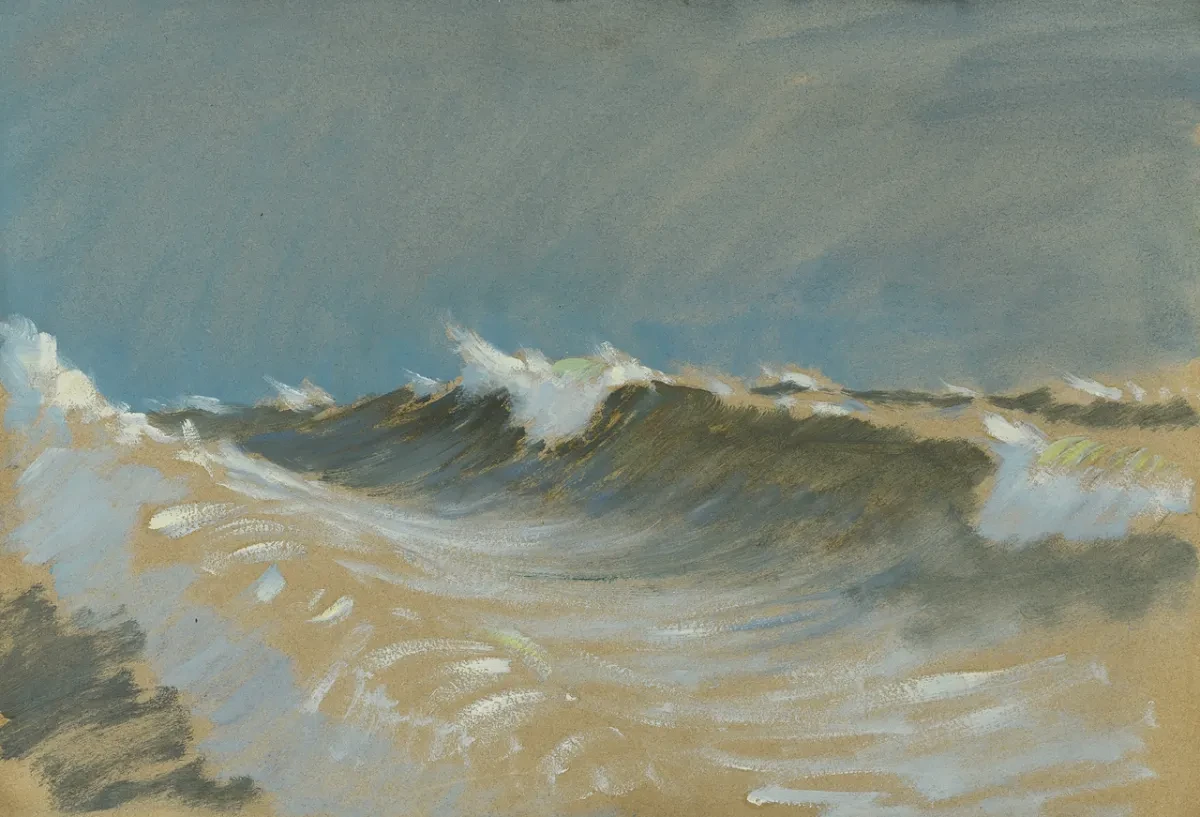
Seascape by John Everett
Time spent isolated at sea has become longer for many fishers
Why are workers in fishing so vulnerable?
Working far out at sea, fishermen and women often find themselves isolated from friends and family. For many of them, periods spent away at sea have grown longer in recent years.
One reason for this is the emergence of large 'factory ships', which smaller fishing boats now visit to offload their catches. Those smaller boats can therefore fish for weeks or even months without needing to return to dry land. While away, workers may have no means of contacting authorities if things go wrong on board. Once abuses start they can find themselves dealing with skippers who may be armed and violent — with no way of getting help.
The distinctive legal position of ocean-going vessels is also crucial. Here too much has changed over recent decades.
In a traditional maritime model for example, a British boat-owner might have hired a British crew and sailed under the British flag. Anyone wanting to protest against their treatment on board would, in theory, have recourse to British law.
But the globalization of the fishing industry saw these connections between owners, crews and flags progressively teased apart.
Fishing companies came to recruit an increasing number of workers from countries in the global South, who were typically be paid lower wages and may have often been prepared to settle for worse working conditions. Filipino fishing workers off the coast of Scotland, for example, have been found to earn much less than their British equivalents, and to face inferior working conditions.
What are flags of convenience - and why can they be a problem?
Just as importantly, many fishing boats have been registered, or 'flagged', under the banner of far-away countries that they may never have reason to visit. But it is this ‘flag state’ that a worker must appeal to if his or her rights are abused.
In some cases, the worker in question may not even know which country’s flag his or her boat is sailing under. In all too many instances, the flag state will show no interest in protecting their rights.
Many ships have been found to sail under 'flags of convenience', which means that their owners have registered them in countries that they know will turn a blind eye to poor wages or working conditions.
In theory, workers who find themselves in difficulty should contact someone in the flag state for help. In practice, that is very hard for workers to do once out at sea. But even if they could, flag of convenience countries tend not to sign up to key legal agreements protecting workers’ rights. As a result, they represent floating havens for exploitation and abuse.
The legal quirks of the flag state system and the geographical isolation of workers create governance gaps that all too many workers are falling through.
How can we tackle human rights abuses in the fishing industry?
One important question to ask concerns who is morally responsible for the ill-treatment that fishermen and women can suffer. The answer to that question is complex, because a number of actors or institutions must share some of the blame.
Perhaps we need look no further than those who actually commit crimes against fishermen and women? Certainly, owners and skippers who deliberately abuse and mistreat workers ought to be punished with the full force of the law. So should the people traffickers who supply the industry with workers, in the full knowledge that they are likely to be abused and exploited.
But other actors must bear a share of the blame too.
It wouldn’t make economic sense for owners and skippers to mistreat workers if they knew that major seafood companies would refuse to buy their catches. Some seafood companies, however, could be much more vigilant about what happens higher up the supply chain. If they fail to properly investigate allegations of abuse, or if they knowingly continue to buy fish caught by mistreated workers, they must bear some of the blame for crimes that happen at sea.
Individual consumers also play a role in supporting human rights problems within the industry.
Some people are nutritionally dependent on eating fish, especially in the global South. But others have a choice. It would be wrong for them to give the industry their support – and their money – if this means the industry will continue to be tainted by modern slavery and other crimes. If they were determined only to buy from fisheries with a good human rights record, by contrast, this could make a real difference.
Finally, government policy in coastal states can sometimes make the problem worse. Ninety per cent of the world’s fish are caught in the marine territory of one country or another. Putting the widespread problem of illegal fishing to one side, boats can only fish with the permission of the local coastal state. All too often, however, coastal states are prepared to allow companies to access their fish without asking enough questions about the treatment of workers. If they turn a blind eye to abuses, while earning fees from fishing companies, they too are part of the problem.
How, then, might the situation of individual fishermen and women be improved? In my book A Blue New Deal: Why We Need A New Politics for the Ocean, I’ve argued that a whole series of reforms might be necessary.
Fishing and human rights - making consumers more aware
A key part of the solution to human rights abuses must be better access to information.
Only when consumers possess detailed information about working practices at sea can they make ethical choices. The Marine Stewardship Council, for example, awards a ‘Blue Tick’ to fish that it considers to be caught sustainably.
It is also concerned with labour standards, though this part of its brief has attracted less attention. It refuses its ‘Blue Tick’ to any company that has been found guilty of using forced labour in the previous two years. But is that a tough enough standard? Charities like Human Rights Watch have argued that it is not.
There are many ways in which workers can be abused in fishing, and forced labour is only a part of a broader picture. If the Council embraced a fuller and more demanding set of standards, this would give consumers more confidence that they are not helping to support bad practices.
Fishing and human rights - the role of coastal states
The governments of coastal countries can and should refuse access to boats whose owners will not agree to protect labour rights.
They can make access to their waters conditional on proper inspections, and on upholding key labour standards such as access to medical care, written contracts, and proper breaks. In their capacity as ‘port states,’ where boats come in to dock and offload their catches, they can also refuse entry to companies that will not comply with basic worker protections.
Some governments have already put some pressure on fishing companies to show that their supply chains are 'slavery free'. The UK’s Modern Slavery Act of 2015, for example, requires all large corporations to report on the risk of slavery and forced labour within their supply chains.
It’s not clear that the Act has had a decisive impact on the fishing industry yet, but if properly enforced, it could provide an important safeguard. If other countries adopted similar standards and implemented them with determination and consistency, this could pay major dividends for some of the world’s most vulnerable workers.
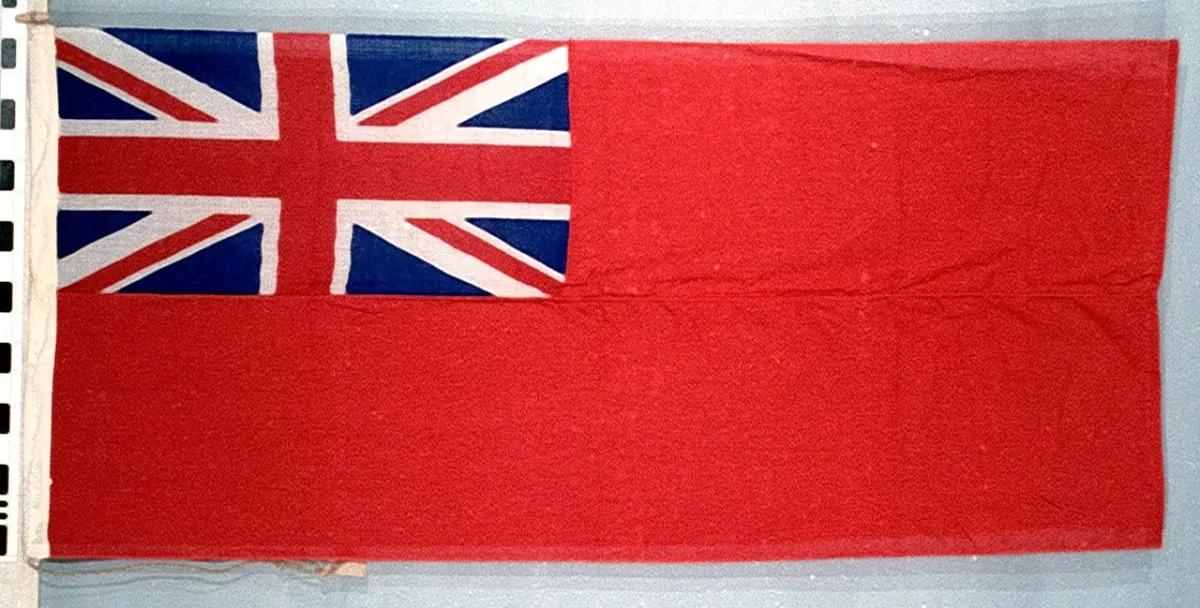
Red Ensign flag
After the First World War, ships began to fly flags of countries that would grant economic advantage. The term 'flags of convenience' however was not used until the 1950s.
Fishing and human rights - tackling 'flags of convenience'
Other possible changes are more structural in nature. The flag state system is at the root of many of the problems that plague the fishing industry. It offers legal cover to employers unscrupulous enough to engage in practices like illegal fishing or forced labour.
Flag of convenience countries, which sell their flag to gain revenue but have no real intention of extending protection to workers, are a vital cog in the machinery of exploitation and abuse.
We might ask, however, why the protection of workers should be left to the flag state alone. Flag of convenience countries have shown that they have little interest in protecting workers. What if others could step in instead?
One radical possibility would be to create a dedicated international force – a kind of ‘ocean police’ – which could board vessels suspected of engaging in modern slavery, or of beating or killing workers, in order to free those workers and punish the culprits.
Is this a realistic possibility? Perhaps not. The international law of the sea has been slow to change, and it still shows something of a blind spot for human rights at sea.
But perhaps existing powers to tackle slavery at sea could be extended or more consistently enforced. All naval vessels possess the right to board boats suspected of holding people in conditions of slavery. That right could be extended to cover a series of related practices, including forced labour and bonded labour.
Still, the right to board and inspect vessels is probably not enough to make a real difference. Without the right to liberate people who are found living in conditions of slavery, or to arrest any culprits, merely boarding and inspecting boats will make little difference. When it comes to workers’ rights, the contemporary Law of the Sea still has some way to go.
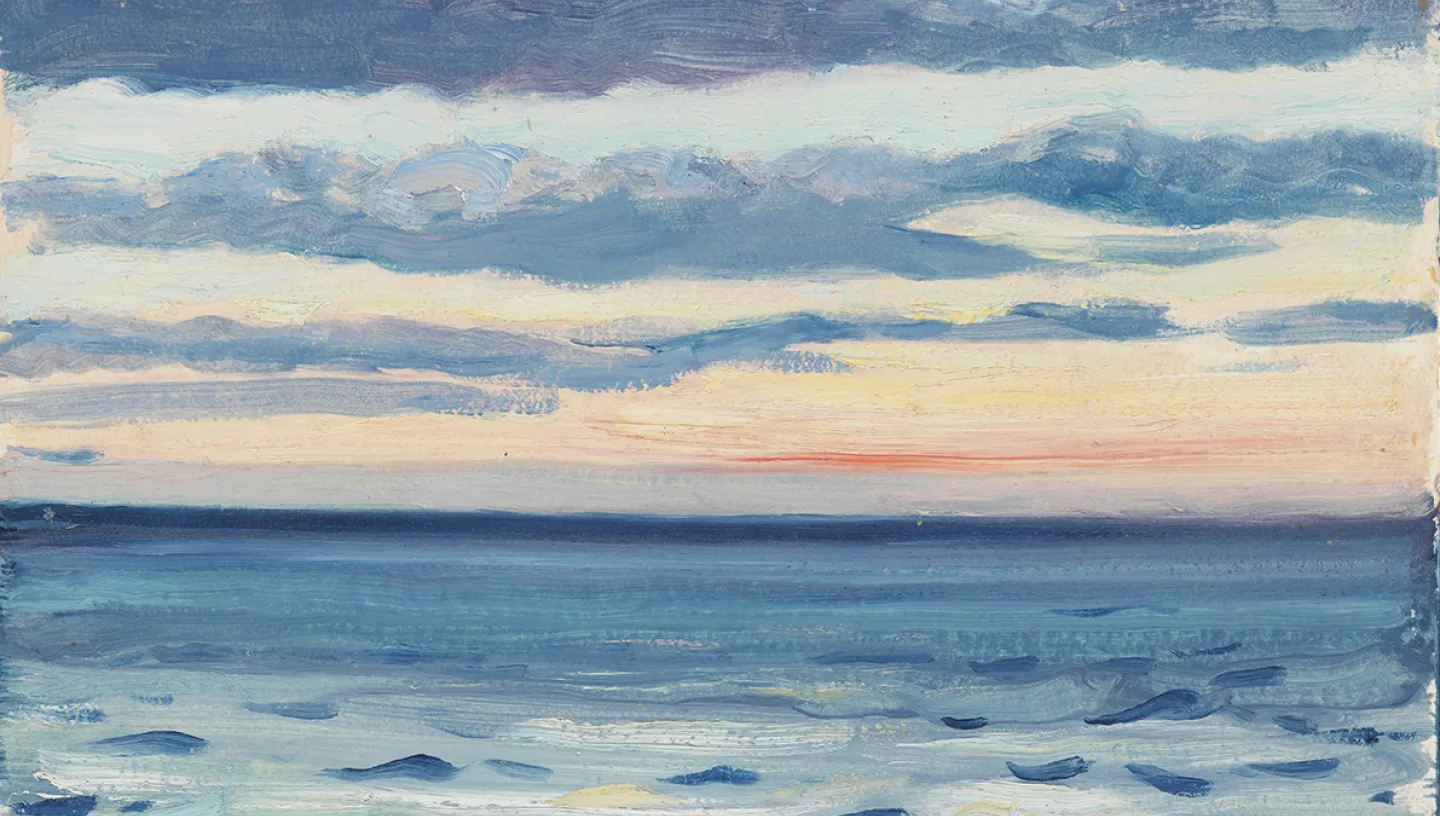
Our Ocean, Our Planet
Main photo by Mae Mu on Unsplash
